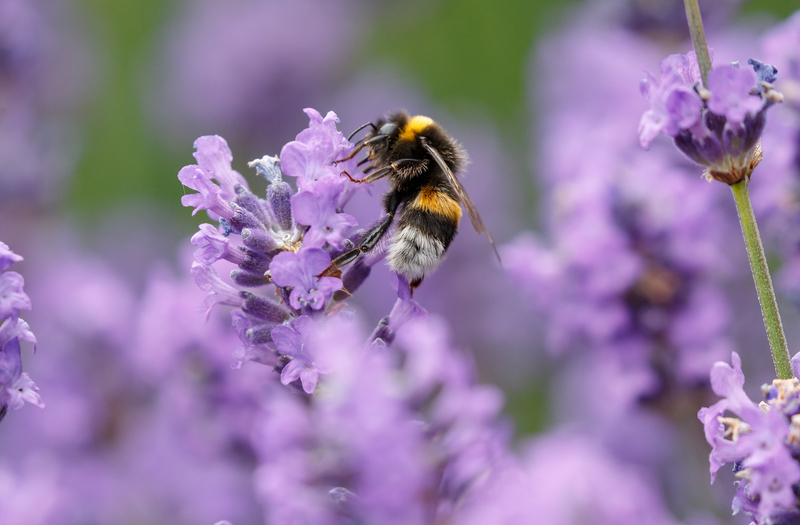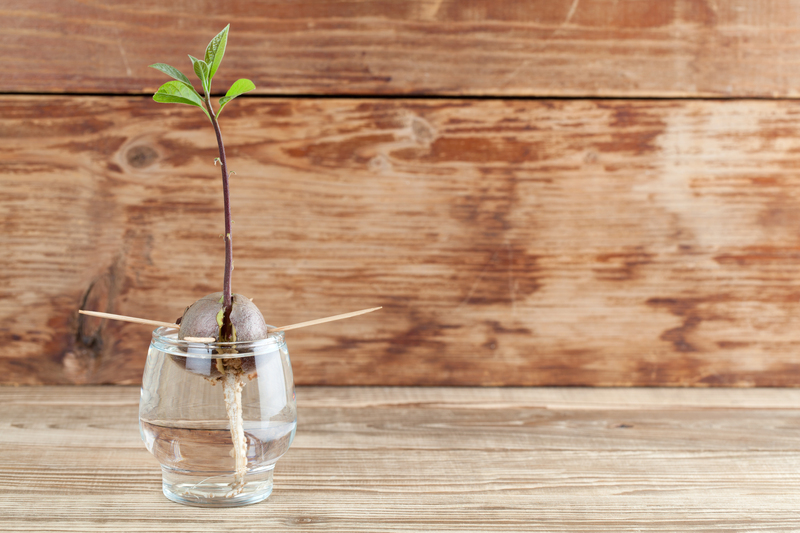Gardening made easy: 9 beginner tips to grow by
Posted on 14/06/2025
Gardening Made Easy: 9 Beginner Tips to Grow By
Starting your own garden might seem challenging, especially if you're new to the world of plants. But with the right guidance and a dash of patience, gardening can be easy and incredibly rewarding. Whether you're hoping to cultivate flavorful vegetables, vibrant flowers, or a lush lawn, these nine handy gardening tips for beginners will help you nurture healthy plants and enjoy a beautiful green space right at home.
1. Start With a Plan -- Gardening Starts Here
Every great garden begins with a thoughtful plan. Choosing the right spot, selecting the best plants, and organizing your space are essential early steps. Before buying seeds or tools, evaluate your garden space. Consider the following:
- Sunlight: Observe how much sunlight your garden receives throughout the day.
- Soil: Test your soil's quality and drainage.
- Climate: Choose plants that thrive in your region.
Sketch your garden layout and designate sections for vegetables, flowers, or herbs. Starting small makes gardening easier for beginners and helps ensure your efforts are manageable and productive.

2. Choose the Right Plants for Your Area
The secret to an easy gardening experience is selecting plants that naturally flourish in your local environment. Check your area's USDA Plant Hardiness Zone or consult your local nursery for advice. Native and climate-appropriate plants are typically less demanding and more resistant to disease and pests, making them perfect for those new to gardening.
- Vegetables: Tomatoes, lettuce, radishes, and beans are beginner-friendly.
- Herbs: Basil, mint, and parsley are low-maintenance.
- Flowers: Marigolds, sunflowers, and zinnias are easy to grow and vibrant.
Pro Tip:
Resist the urge to plant too many different varieties at once. Start with a handful of favorites and expand as you gain confidence.
3. Learn the Art of Soil Preparation
Soil is the foundation of every garden. Rich, well-draining soil filled with organic matter gives your plants the best start. Begin by removing weeds and rocks, then loosen the soil with a shovel or garden fork. Mix in compost or well-rotted manure to boost nutrients and improve texture.
- Test your soil's pH and adjust if necessary. Most plants prefer a pH between 6.0 and 7.0.
- Apply a layer of mulch around seedlings to retain moisture and suppress weeds.
Healthy soil leads to robust roots -- it's the bedrock for effortless gardening!
4. Water Wisely -- Not Too Much, Not Too Little
One of the most common beginner mistakes is improper watering. Both overwatering and underwatering can harm your plants. The goal is to maintain consistently moist, but not soggy, soil.
- Water early in the morning or late in the afternoon to reduce evaporation.
- Check soil moisture an inch below the surface; only water if dry.
- Drip irrigation or soaker hoses provide efficient, targeted watering.
Gardener's Insight:
Different plants have different watering needs. Group them accordingly and adjust your schedule as the seasons change.
5. Feed Your Plants With Nutrient-Rich Fertilizer
For lush, healthy growth, plants need more than water and sunlight; they also require a steady supply of nutrients. Use a balanced, slow-release fertilizer or incorporate organic matter like compost or worm castings into your soil.
- Read package instructions carefully to avoid over-fertilizing, which can damage plants and the environment.
- Feed vegetable gardens when they start fruiting or flowering for best results.
Fertilizing is one of the top gardening tips for beginners -- it keeps your plants vibrant and productive, making your gardening journey easier and more successful.
6. Learn the Basics of Plant Spacing
Overcrowding is a common pitfall in starting a garden. Plants need adequate room to grow, expand roots, and access nutrients and airflow. When you plant seeds or seedlings, read package instructions or tags for recommended distances between plants.
- Too-close plants: Compete for water, sunlight, and nutrients, increasing disease risk.
- Proper spacing: Reduces pests, diseases, and boosts harvests.
Spacing is cornerstone in making gardening easy for beginners, so don't rush the planting process.
7. Mulch for Moisture and Weed Control
Mulch might just be the unsung hero of easy gardening. Spreading a 2-4 inch layer of organic mulch (like wood chips, straw, or leaf mold) helps your soil retain water, keeps roots cool, and prevents weeds from sprouting.
- Mulch moderates soil temperature, extending growing seasons.
- Organic mulches decompose and add nutrients to the soil.
Remember to avoid piling mulch against plant stems to prevent rot and pest problems.
8. Keep an Eye Out for Pests and Diseases
An ounce of prevention is worth a pound of cure in gardening. Regularly inspect your plants' leaves (top and undersides), stems, and the surrounding soil to spot signs of pests or diseases early.
- Look for holes, discoloration, or misshapen leaves.
- Encourage beneficial insects like ladybugs and lacewings.
- Use natural deterrents such as neem oil, soap sprays, or companion planting.
Quick action stops issues before they spread, making gardening more enjoyable and less stressful for beginners.
9. Be Patient and Consistent -- Gardening is a Journey
Of all gardening tips for beginners, patience is the most valuable. Plants grow at their own pace, and not every seed will sprout or thrive. A steady care routine, weekly check-ins, and consistent watering and feeding will eventually be rewarded with blooms and harvests.
Remember:
Gardening is a process -- celebrate each milestone, from first sprouts to full-grown flowers and fruits.

Frequently Asked Questions About Making Gardening Easy
Is gardening expensive for beginners?
Gardening doesn't have to break the bank. Start with a few basic tools, affordable seeds, or even container gardening. As you gain experience, you can expand your garden and invest in higher-quality tools.
How much time does a beginner gardener need?
Allocate 15-30 minutes daily for watering, weeding, and observation. Most tasks can be managed on weekends. Consistency is more important than spending hours at a stretch.
What's the best way for beginners to learn gardening?
Learn by doing, reading reputable gardening books and blogs, and joining local gardening clubs or online communities. Ask questions, share successes, and learn from mistakes -- it's all part of growing as a gardener.
Can I garden in a small space or indoors?
Absolutely! Many herbs, leafy greens, and compact vegetables thrive in containers or window boxes. Vertical gardening and hydroponic setups make gardening possible even indoors.
Final Thoughts: Your Gardening Journey Starts Now
Gardening made easy isn't a myth -- it's about embracing simple, proven techniques and enjoying the process. By following these nine beginner gardening tips, you'll create healthy, beautiful spaces and reap the joys of homegrown plants. Remember to start small, learn as you go, and let nature guide you.
Ready to grow your green thumb? Gather your seeds, roll up your sleeves, and step into your garden. Every gardener started as a beginner, and with patience and the right knowledge, you'll be harvesting your own crops and bouquets before you know it!
Key Takeaways for Gardening Success:
- Plan carefully before planting.
- Select plants suited for your climate and soil.
- Prep your soil with nutritious compost.
- Water consistently, but don't overdo it.
- Fertilize wisely for healthy growth.
- Give plants ample space to spread out.
- Mulch to protect and nourish soil.
- Monitor for pests and diseases regularly.
- Exercise patience and enjoy the journey!
With these gardening tips to grow by, even beginners can enjoy a thriving, easy-care garden. Happy gardening!
Latest Posts
Innovative Planting Techniques: The Rise of Container Gardening
Thriving in Turbulence: Strengthening Your Garden's Defenses
Refresh Your Overgrown Garden: Steps to a Masterpiece
Creating a Backyard Oasis Fit for Both Kids and Plants
Evergreen Climbers: The Key to Refreshing Dark, Shaded Corners

